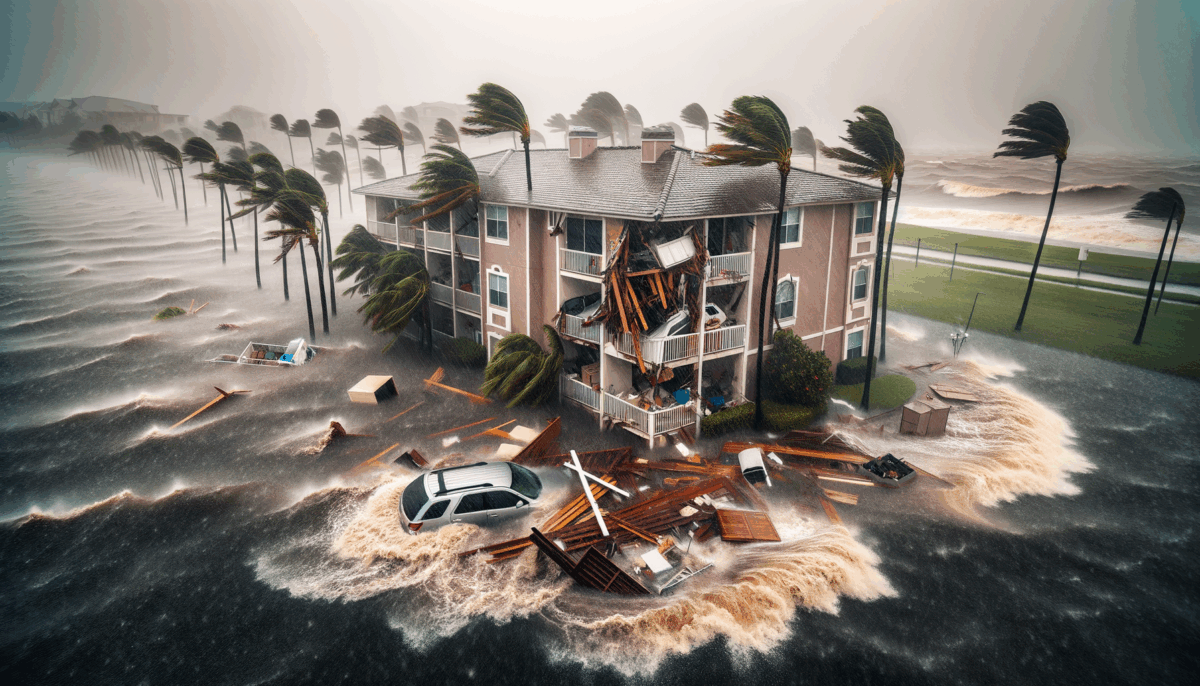Florida’s sun drenched beaches and palm lined streets make it a dream destination, but living in the Sunshine State comes with unique challenges, especially for renters facing the threat of flooding. Hurricanes, tropical storms, and heavy summer downpours can flood rental homes in minutes. As a Florida renter, being proactive and knowledgeable about Florida Renters Insurance and flood protection is not just wise;. It’s essential. Here’s your guide to safeguarding your rental, possessions, and peace of mind after the waters rise.
Understanding Florida’s Flood Risks for Renters
Florida is synonymous with water, from its winding rivers and sprawling coastlines to its seasonal rains. Unfortunately, this abundance also brings a persistent threat of flooding. Florida experiences more flood events than any other state in the U.S., with both inland and coastal communities susceptible to sudden water surges. Hurricanes and tropical storms can inundate entire neighborhoods. Still, even nonstorm days can deliver flash floods due to heavy rainfall and poorly draining soils.
Renters often underestimate their exposure, assuming their landlord’s insurance will handle flood related losses. However, building insurance rarely covers the tenant’s belongings or personal liability. Whether living in a bustling Miami high rise or a cozy Orlando bungalow, understanding your local flood risk is crucial. Explore FEMA flood maps, speak to neighbors, and inquire about past flooding incidents in your building or area.
Knowledge is power. The more you know about your environment, the better you’ll be prepared for the unexpected. Assessing your flood risk is the first and most crucial step in developing a protection plan tailored to your circumstances as a Florida renter with Florida renters insurance.
Why Florida Renters Insurance Matters After a Flood
Many renters discover too late that their landlord’s property insurance does not extend to their belongings. After a flood, this oversight becomes painfully clear when damaged furniture, electronics, and cherished keepsakes aren’t covered. Florida renters insurance, specifically with flood riders or supplemental policies, offers a safety net when the waters recede, and the repair bills start to mount.
Not all standard renters insurance policies automatically include flood protection. Some cover water damage from broken pipes or leaks but exclude natural flooding. In Florida, where threats are ever present, you must verify exactly what your policy does and doesn’t protect. Failing to do so could leave you responsible for replacing everything you own.
Having renters insurance isn’t just about reimbursement. It also provides peace of mind, knowing you have support for temporary housing, meal expenses, and the logistics of recovering from a disaster. In the emotional and financial aftermath of a flood, this layer of security can make all the difference.
Key Florida Renter Insurance Coverage Options Every Tenant Should Know
When shopping for Florida renters insurance, look beyond the basics. Personal property coverage should account for the replacement cost of your belongings, not just their depreciated value. Check whether your insurer offers “replacement cost coverage” versus “actual cash value.” The former ensures you can buy new items, not just receive a fraction of their worth.
Basic Florida renters insurance typically excludes flood damage. Still, supplemental flood insurance in Florida is available from the National Flood Insurance Program (NFIP) or private insurers. This added policy can cover losses due to rising waters, mudflows, and other flood related circumstances. Look for policies that include coverage for structural damage (if you’re responsible for fixtures) and personal property.
Don’t overlook additional living expenses (ALE) coverage. Suppose your rental becomes uninhabitable after a flood. In that case, ALE helps cover hotel bills, meals, and other out of pocket costs while repairs are underway. This essential benefit can be a lifeline as you rebuild your daily routine.
Steps to Take Immediately After Flood Damage
When floodwaters invade your home, your safety comes first. Evacuate if necessary and avoid contact with standing water, which may be contaminated. Once it’s safe to return, document everything: take photos and videos of damaged belongings, water levels, and every affected room. This visual evidence will be crucial for your Florida renters insurance claim.
Next, notify your landlord and Florida renters insurance provider as soon as possible. Quickly reporting a loss not only speeds up the claim process but may also fulfill a requirement in your policy. Ask your landlord about the building’s insurance and coordinate repairs for structural issues while focusing your efforts on personal property and temporary needs.
Finally, begin salvaging what you can, but don’t throw anything away until your adjuster has seen it. Keep all receipts for emergency purchases, like cleaning supplies or temporary accommodations. Detailed records and careful action in the first hours and days set the stage for a successful recovery.
Navigating Claims: Tips for Smooth Reimbursement
Filing a flood claim can feel overwhelming, but preparation pays off. Start by reading your policy carefully and know your deductibles, exclusions, and coverage limits. When you contact your insurer, ask for clear instructions on documenting losses and which forms or proofs they require.
Organize your documentation meticulously. Create a list of damaged items, including descriptions, purchase dates, and estimated values. Attach your photos, receipts, and correspondence with your landlord or contractors. Timely, thorough submissions help prevent delays and disputes down the line.
Stay proactive and keep communication lines open. Follow up regularly with your claims adjuster and respond promptly to any requests for further information. If you encounter obstacles or denied claims, don’t hesitate to ask for clarification, provide additional evidence, or escalate to a supervisor. Persistence and clarity can make all the difference in reaching a fair settlement.
Building Resilience: Long Term Protection Strategies for Florida Renters Insurance
Flood preparedness doesn’t end when the waters recede. Building long term resilience starts with reviewing your Florida renters insurance annually and updating your coverage as your possessions or living situation change. Consider creating a digital home inventory so you’re always ready to provide proof of losses in any emergency.
Proactive steps can also minimize future risks: store valuables and essential documents in waterproof containers or higher locations. Ask your landlord about flood mitigation measures, such as sump pumps or raised electrical outlets, and advocate for improvements where possible.
Finally, stay informed. Sign up for local alerts, monitor weather updates, and have an emergency kit and evacuation plan ready. Resilience is more than insurance. It’s a mindset and a set of habits that empower you to face Florida’s unpredictable weather confidently and calmly.
Floods are a fact of life for Florida renters, but disaster doesn’t have to mean despair. With the proper knowledge, preparation, and insurance, you can weather the storm and recover quickly. By understanding your risks, choosing witty coverage, and acting decisively before and after a flood, you protect not just your belongings but your sense of security and home. Stay vigilant, stay insured, and let peace of mind be your strongest safeguard against whatever the Florida skies may bring.


